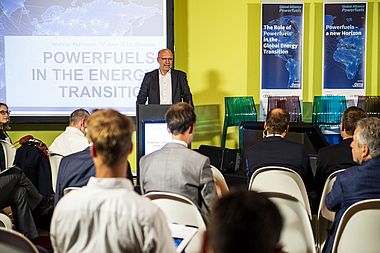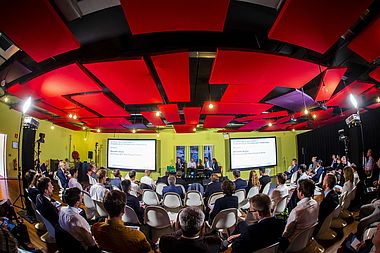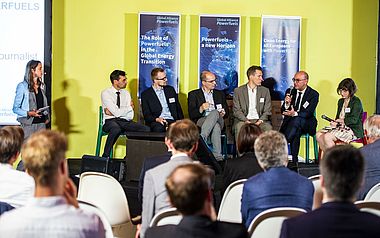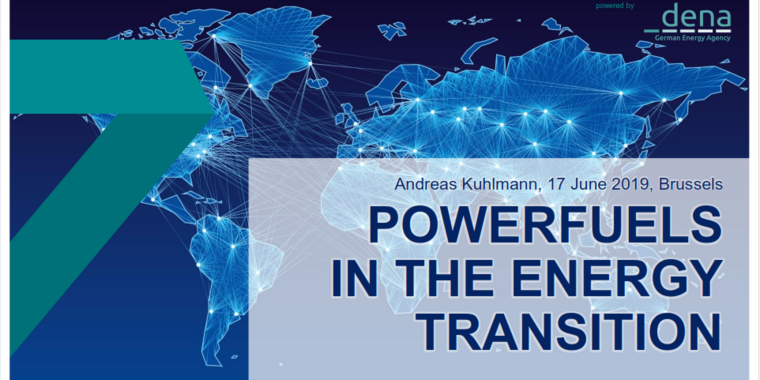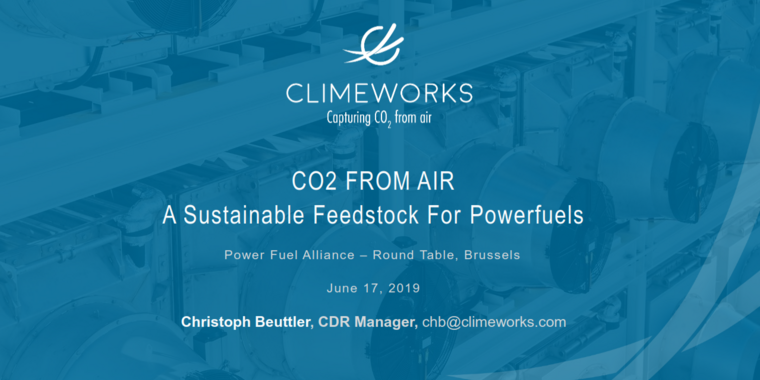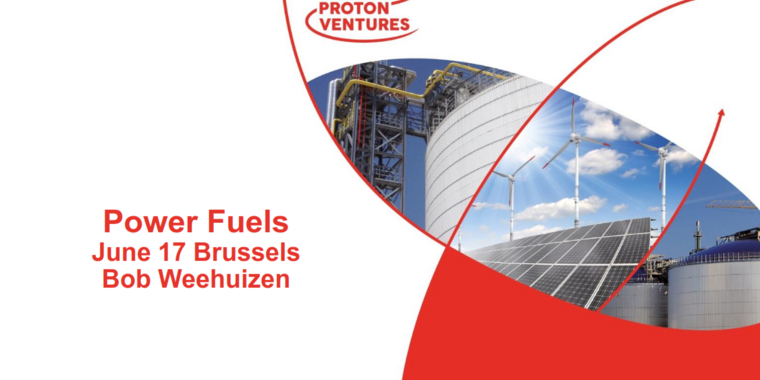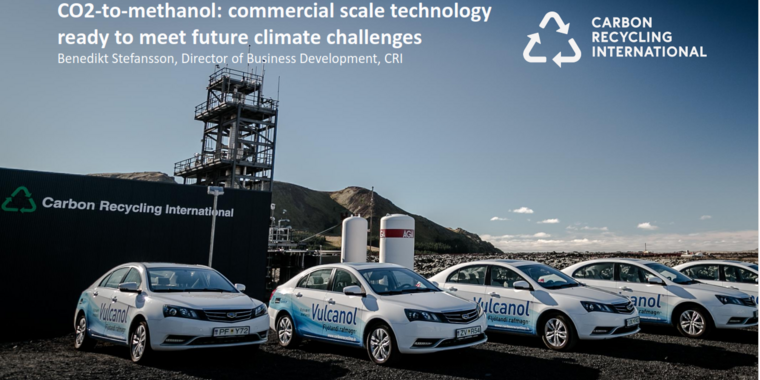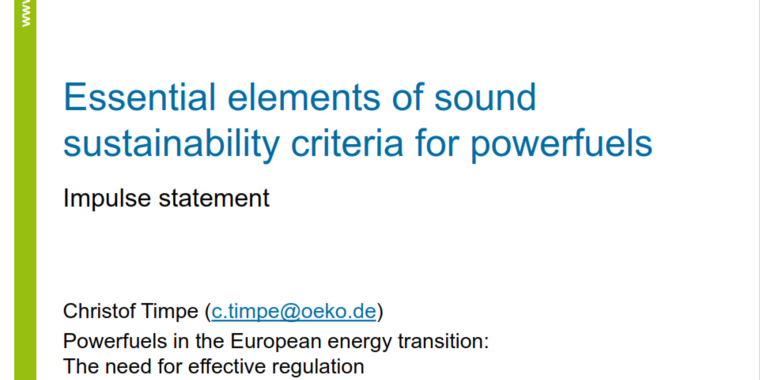Andreas Kuhlmann, Spokesperson of the Alliance and Chief Executive of German Energy Agency (dena), opened the event with a short introduction about powerfuels are, presented some key findings of the Alliance´s guideline paper for market development of powerfuels.
The first part of the roundtable, Powerfuels technology frontiers was moderated by Meredith Annex, Bloomberg NEF, and started with impulse talks from:
Christoph Beuttler, CDR Manager, Climeworks, presented the direct air capture technology and argued that it is the sustainable carbon feedstock source for powerfuels. He also shared Climeworks’ market scale up strategy and outlined the land use needs for meeting EU’s transportation energy demand through biofuels and powerfuels. Climeworks’ modular approach can be flexibly adapted to project size and may see costs fall to around 100€/ton CO2 captured.
Bob Weehuizen, Business Development Manager, Proton Ventures, claimed that ammonia (Nfuel) is a promising powerfuel and shared Proton Ventures’ technology and goals. He argued that using ammonia is a very efficient way to store, transport hydrogen because of its energy density, concluding with some applications of ammonia in maritime. He demonstrated that the proven technologies used in Proton Venture’s plants can be scaled to virtually any need.
Benedikt Stefánsson, Director of Business Development, Carbon Recycling International outlined the need for a liquid carrier of renewable energy which can be sustainably scaled and substantiated why methanol was a well suited option. He shared the future global market outlook for transport modes and highlighted the role that methanol could play.
Key themes discussed during the roundtable included market conditions for large scale powerfuel production and decentralised small scale production, system level effects and the role of battery electric vehicles and powerfuels in transport.
The second part of the roundtable, EU regulatory horizons for powerfuels was moderated by Sonja van Renssen, Freelance Climate Energy & Environment Journalist. The initial impulse talks were given by:
Augustijn Van Haasteren, Senior Expert, DG ENER, European Commission described the status quo of EU renewable electricity regulations and the future regulations for other energy carriers. He concluded by affirming that the Commission is actively working on understanding the various barriers for energy carriers as part of the sector coupling study and the results would be taken as basis for Commissions’ future work in this area.
Jori Sihvonen, Clean Fuels Officer, Transport & Environment, pointed out that powerfuels are crucial to defossilation in addition to efficiency, direct use of renewable electricity and that the regulatory framework must ensure that powerfuels are sustainably produced. He mentioned that Maritime and Aviation are main sectors where powerfuels will play a major role and stressed on the importance of having robust sustainability criteria for powerfuels.
Christof Timpe, Head of Energy & Climate Division, Member of the Committee, Oeko-Institut e.V., expanded on the sustainability requirements for powerfuels. He clarified that since the average emission factor of grid electricity is much higher than renewable electricity (because of fossil based electricity) producing powerfuels from grid electricity could in fact lead to more emissions. However, when powerfuels are produced from additional renewable electricity that is not counted against the target for the renewable electricity targets, then powerfuels would indeed be sustainable.
The roundtable discussion showed that powerfuels will be very important to meet EU climate targets and that key stakeholders are actively engaged in promoting market development.
The current EU and national framework conditions should be further developed to this end. The event highlighted that all sectors can benefit from powerfuels (e.g. chemicals, transport/mobility, energy, industry). It was also clear that it needs concerted actions of industry and politics to kickstart the powerfuels market in the EU and also abroad. The Global Alliance Powerfuels will foster such a dialogue to strengthen powerfuels as a missing link for a global energy transition.



